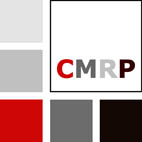 |
CulturalMemoryandtheResourcesofthepast |
|
|
|
LEARNING EMPIRE – CREATING CULTURAL RESOURCES FOR CAROLINGIAN RULE Principal Investigator: Walter Pohl After the Roman Empire ended in the West in 476, Roman emperors (whom only modern scholars call ‘Byzantine’) continued to be raised in the East, whereas the Western countries were governed by kings. Only with Charlemagne, who in 800 was raised as an emperor in Rome, did the political concept of Empire return to the West.[1] The process of imperialization of the ‘regnum francorum’ was in many respects experimental. Imperial titles and rituals, political roles and forms of representation, biblical models and classical narratives had to be appropriated and developed. Much of this came, directly or indirectly, from the contemporary or late antique Roman Empire and its Greek cultural matrix. This process has, of course, been studied under many aspects and in many details, but mainly for its concrete forms of expression. What this project should do is to take a look at the underlying cognitive resources that made it possible to mark off an ‘imperial mode’ in the political culture of the 'Frankish kingdom turned Roman Empire' in the Carolingian period. How was the political and transcendental significance of empire understood, and which were the texts on which this understanding rested? Which ‘cultural flows’ made transfers of knowledge to the Carolingian World about empire and about the correct forms of Christian rule possible? Which perceptions of the Roman past were involved here? By raising these questions, the project is closely connected to the Cambridge Project. A broad range of cultural contents shaped ideas about empire. Sometimes, failed translation, cultural misunderstandings, open controversy and deliberate underscoring of difference impeded communication. In close connection with Utrecht and Cambridge, the project Learning Empire will specifically deal with the difficult problem of Christian concepts of rulership and community. One of the ‘hubs’ in the spread of – genuine, reshaped or invented – Roman models to the Carolingian World and the other Western kingdoms was papal Rome. |
Sub-Projects:
The Popes as
cultural Brokers between east and west in the 8th
Century
Exegesis and
imperial governance
|

